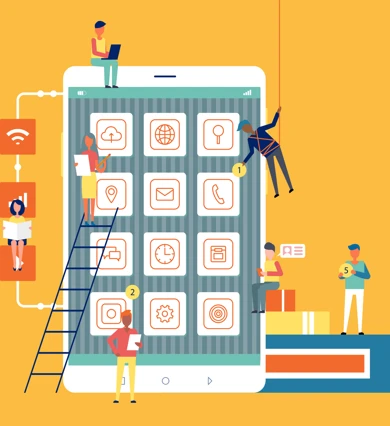Living with a long-term disability or illness can be challenging in many ways. If you’re looking to buy a home, there's plenty to think about, but it is more than possible and we’re here to help.
For starters, there are a number of government support schemes and external incentives to help you get on the property ladder or manage your monthly repayments.
Getting a mortgage with long-term disabilities
In some instances, you may very well have a regular income, and a deposit that you can use to apply for a mortgage, so affordability isn't a concern to you. In this case, applying for a mortgage with a long-term disability won’t be different to any other application.
If you receive disability benefits or financial support, be it Universal Credit or a Personal Independence Payment, you may find some lenders are less inclined to offer support. You should speak to your lender or mortgage adviser about how your benefits may impact your application, as they will be able to offer guidance based on your individual circumstances.
Some lenders are more likely than others to accept benefits as a form of income when they’re conducting their affordability checks, and this does unfortunately include disability-related payments.
If you’re only receiving disability-related benefits for a short period of time (you’re returning to work at some point in the future, for example), you may find it even trickier. As lenders are unlikely to approve a mortgage application based on short-term benefits, as they’re assessing your long-term affordability, the approach you need to take will depend on your personal circumstances and situation.
Legalities and your rights
It is crucial to note that if you can afford a mortgage, banks and lenders are not allowed to reject your application on the basis of your disability. If you feel this has happened to you, we recommend getting in touch with a solicitor.
Lenders also cannot insist that you pay a larger deposit or make larger monthly payments than non-disabled customers. They are obligated to assess your application on the merit of your affordability, just as they would with any other application that comes their way.
Even if you don’t think of yourself as a disabled person, anti-discrimination rights may still apply to you. Under the Equality Act, a disability is any physical or mental condition that has a substantial and long-term (more than 12 months) impact on your capacity to manage day-to-day tasks.
This will apply if you have a physical health condition, like cancer, HIV, or MS, and/or a mental health condition like depression. It should be noted that we do have mental health- specific resources available to help with this.
How we can help
We have a host of digital tools and resources on hand to help make the mortgage process as easy as possible. If you’re not able to physically come into a branch and speak to an adviser, we can facilitate the entire process via phone calls, or through online platforms like Zoom or Microsoft Teams.
While we can’t give legal or financial advice, we’re here to help you manage the mortgage process from first enquiry to completion.
Our digital tools
Our HomeBuying app is an excellent tool if you’re just starting out on your home buying journey. It's well suited to helping those who are either not familiar with the process of buying a house, or who have difficulties speaking on the phone or leaving the house.
With the app, you can track and manage your savings, work through the homebuying process step- by- step, and access a wealth of resources and articles to help you make informed decisions.
Resources
- HOLD is a shared ownership scheme for people living with long-term disabilities and is part of the government’s affordable housing programme. HOLD is only available in England, and you can only apply if the homes available under shared ownership don’t meet your needs (for example, you may require a ground-floor home)
- MySafeHome believes that having a disability should never stand in the way of homeownership, and we couldn’t agree more. They will assess your eligibility and help you buy a home if you’re disabled, working with selected lenders on shared ownership schemes
- Disabled People’s Organisations are a series of support organisations that operate across England and Wales. They offer independent, confidential, and free information and advice, run by and designed for disabled people. They support the following regions:
-
England - Scope
-
Scotland - Citizens Advice or Housing Options Scotland
-
Northern Ireland - Disability Action
-
Wales - Citizens Advice Cymru or Disability Wales
Do you require additional support?
To help us tailor your homebuying journey to your needs, let us know if you have any specific requirements or have recently experienced a change in your circumstances.
If you have any additional accessibility issues that you’d like to make us aware of, or if there’s anything that you think we can improve on, click here.
Useful links
Ready, steady, mortgage! Getting mortgage ready with the MyMAB App
How to renovate your home with a remortgage
How do mortgage affordability assessments work?
Important information
Your home may be repossessed if you do not keep up repayments on your mortgage.
There may be a fee for mortgage advice. The actual amount you pay will depend on your circumstances. The fee is up to 1% but a typical fee is 0.3% of the amount borrowed.



